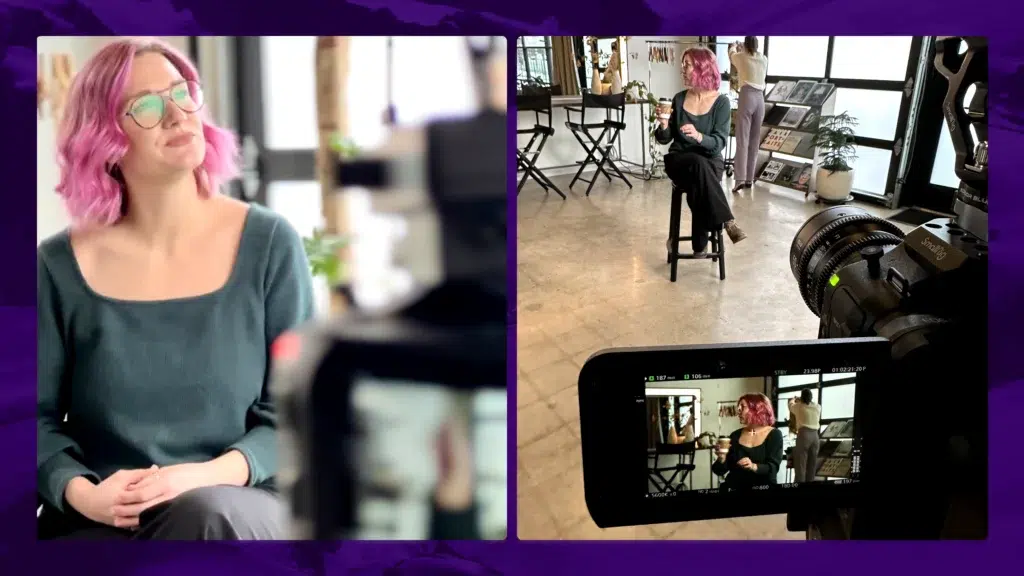Should Your Give Your Talent Questions Beforehand?
To over-prep talent or be more off-the-cuff? This is a question that is always on an interviewer’s mind. Learn how to prep your talent correctly with our guide.

To over-prep talent or be more off-the-cuff? This is a question that is always on an interviewer’s mind. If your conversation is too casual, you and your talent might come across as unprepared. If you’re both too prepared, your interview might feel wooden and inorganic. So should you feed your talent your full list of questions before the interview?
Outline, Don’t Detail
There are a few schools of thought here and everyone’s style is different, but in my view, natural is always better for an on-camera interview. If you send your talent your full list of questions, there is a chance that they’ll pre-write their answers and even memorize them. Or want to read their answers from their paper. This is a problem for multiple reasons.
First, no one wants to watch someone recite a speech during an interview. This isn’t a commencement address! Less experienced talent will often visibly try to “remember” their answers as opposed to answering the question sincerely. This is no bueno.
Secondly, when you send a list of questions beforehand, this list can be taken as gospel and any deviation could bewilder or confuse your interviewee and in some cases (I’ve seen it happen!) even make them angry. Sometimes, they simply can’t recover. As we all know, the best interviews come across as conversations between the talent and the audience, or the interviewer as the audience’s proxy. A “real” conversation isn’t scripted.
That said, you certainly don’t want your talent back on their heels for the entire interview. I suggest that you send them a loose outline of the conversation or even a bulleted list of topics you plan to cover. That way, they’ll be prepared but not too prepared and (hopefully) the actual interview will blossom naturally.
Sometimes, You Have to Go With It
With some talent, especially people with “handlers” or folks from the C-suite, you’re required to submit questions ahead of time. If the choice is between doing as they ask or not getting the interview, obviously, you need to submit to their ask. But that’s ok. As a professional interviewer, you’ve learned to make lemonade out of corporate, PR-filtered lemons. With all but the most rigid talent, you can still work to make the most out of the interview, ideally guiding the conversation down whatever road you need, even if that road travels “off-script.” This isn’t always possible, but you do what you can.
Post Is Your Enemy, Post is Your Friend
Some of the hardest editing you’ll ever do is cleaning up a bad interview in post. Trying to make a memorizing, reciting subject seem like they’re actually engaged can be difficult, but…it’s also what post production is for. This is why I always recommend having at least two cameras for two different angles that you can cut between. You’d love to use your time in post simply to adjust colors, lighting and sound, but a good editor can reframe an entire interview if need be, especially with a thorough interview transcript. It’s simply better to not have to do that.
So, should you feed your talent the interview questions ahead of the interview? Not unless you have to.
Subscribe to The Rev Blog
Sign up to get Rev content delivered straight to your inbox.



